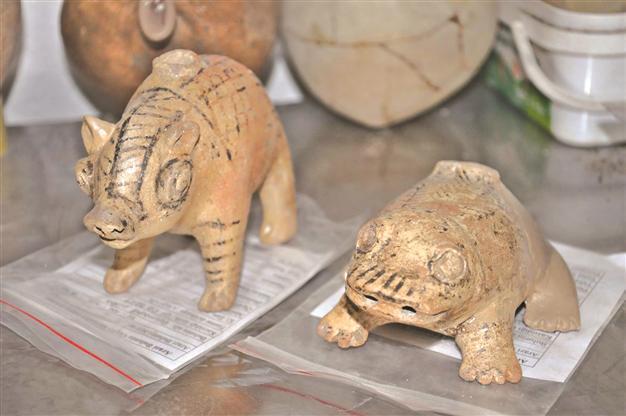Excavations in Kültepe end with new findings

This year’s excavations in Kütahya’s ancient site of Kültepe show that 4,000-year-old history can be traced back to an earlier time. ‘The first aim of the excavations is to discover ancient Bronze Age history,’ says the head of the Kültepe excavations Professor Fikri Kulakoğlı (below). AA photo
Kayseri’s Kültepe excavations of its ancient tumulus site have ended with its 66th excavation, originally starting in 1948.
This year’s excavations at Kayseri’s ancient site Kültepe, the center where the written history of Anatolia began, have unearthed a large monument. The ancient monument will now be carefully examined, said the head of the Kültepe excavations Professor Fikri Kulakoğlu.
The monument’s 75x60-meter-part has been unearthed, said Kulakoğlu. “This monumental structure is the largest building that has been found in the Anatolian and Middle Eastern areas.”
Local kingdoms He said the excavations had been conducted in an area dating back to 4,500 years ago and currently they were working on the monument. The settlement in the tumulus is composed of segments from the early Bronze Age, the middle Bronze Age, the Iron Age, and Ancient Greece and Rome. The most important of these documents is the tablet from 2000 B.C., which explains that there were local kingdoms in Anatolia at that time and the Kaniş Kingdom was the most powerful local kingdom in Anatolia.
Excavation president academic Professor Kulakoğlu said Kültepe’s tumulus excavations have been the longest conducted in Turkey.
The first aim of the excavations is to discover ancient Bronze Age history, he said. In this sense a lot of things have been done, he added. The excavations, as well as the water channels, have brought to light the area’s settlement plan.
“The excavations were carried out by 70 people. The excavations were done in the Kaniş areas. Then we moved to Karum, where the Assyrian traders visited the most.” The job has not been completed.
There are many things to be unveiled in Kültepe, he added. Kulakoğlu said Kültepe was a center where the history of Anatolia began. He said Assyrian traders came to Kültepe 4,000 years ago and brought literacy to people there and, thanks to them, Anatolia joined written history for the first time.
This year’s excavations show the 4,000-year-old history could be traced back to an earlier time. So far, 23,500 cuneiform tablets have been found in excavations here, but Kültepe is a very large area. The team believes that only 1 percent of this area has been excavated so far.
